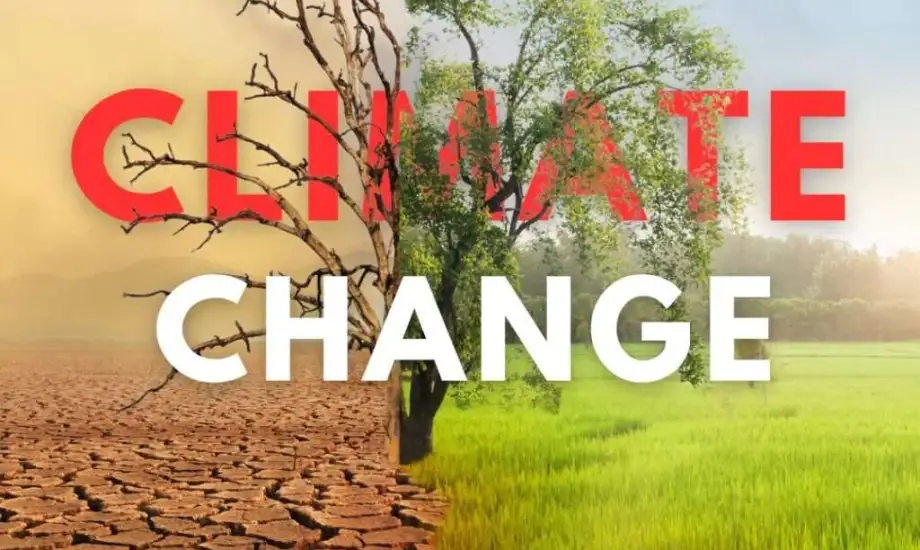India is the world’s largest country in terms of population, comprising around 17% of the global population. It is also the fifth largest economy in the world, on its way to becoming the third largest economy by 2030. Yet, its contribution to cumulative carbon dioxide emissions since the industrial revolution are a mere 3.4% of the world total and at 2 tons its current per-capita emissions are less than half of the global average of 4.7 tons.
India’s per-capita carbon footprint is also the lowest among the G-20 countries with the International Finance Corporation (IFC) acknowledging India as the only G20 nation in line with 2-degree centigrade upper limit for global warming. Additionally, the IFC has highlighted that India’s GDP grew by a Compound Annual Growth Rate (CAGR) of about seven per cent between 2005 and 2019, whereas the emissions grew at a CAGR of about four per cent. This would appear to underscore India’s relative success in decoupling economic growth from greenhouse gas emissions, reducing the emission intensity of its GDP and being a possible model for the globe in general and the global South in particular.
Leading India’s determination to be part of the solution on climate change, Prime Minister Narendra Modi announced a five-point climate action plan (Panchamrit) for India at the UN Framework Convention on Climate Change (UNFCCC) meeting in Glasgow in November 2021. This included the key commitment of achieving Net Zero emissions by 2070 along with four elements of the pathway. These, enumerated below, were later incorporated in India’s Nationally Determined Contributions (NDCs):
Many of these goals upped the already significant targets set by India for itself following the UNFCCC meeting in Paris in 2015. This was possible given the fact that India had achieved its NDCs well ahead of time. In-fact, in so far as use of non-fossil fuel resources for energy, India achieved 40 percent cumulative electric power installation capacity from non-fossil fuel-based energy sources in 2021, nine years before the initial target year of 2030.
Further, between 2017 and 2023, India added around 100 GW of installed electric capacity, of which around 80% is attributed to non-fossil fuel-based resources.. As of now, the share of non-fossil fuel-based resources in installed electricity capacity has reached 45.4 percent. And the key target of 33 percent reduction of emissions intensity of GDP by 2030, from the 2005 level, was met in 2019, 11 years ahead of time.
Apart from the four pathway elements, India has undertaken to create an additional carbon sink of between 2.5 to 3 billion tons of carbon dioxide equivalent through additional forest and tree cover by 2030. As of date, around 1.97 billion tons of carbon dioxide equivalent sinks have been created putting India on track for achieving this Nationally Determined Contribution.
Two other initiatives by India are of global importance.
The first is LiFE – Lifestyle for Environment, a mass movement launched at Glasgow by Prime Minister Modi to encourage the adoption of sustainable lifestyles to address the challenges of environmental degradation and climate change. The G-20, in its communique issued in New Delhi in September 2023, emphasised the importance of behavioural and lifestyle changes as pillars in the strategic plan adopted for advancing energy efficiency across all demand sectors by 2030.
The second push by India is on the development of alternatives to carbon intensive fossil fuels. As a part of this a major effort is the National Green Hydrogen Mission which seeks, by 2030, the development of green hydrogen production capacity of at least 5 million metric tons per annum with an associated renewable energy capacity addition of about 125 GW. This could result in an annual abatement of nearly 50 million metric tons of greenhouse gas emissions.
India’s efforts on climate change are not only domestic but also seek build global partnerships. At the UNFCCC meeting in Paris in 2015, India joined hands with France and launched the International Solar Alliance (ISA) which today has 119 signatories to its framework agreement and is in the forefront of deploying solar energy solutions in the global South to mitigate climate change. India’s huge domestic efforts on pushing solar power have led to majorly reducing the cost of solar power and hence vastly increasing interest in its adoption at home and acting as a model across the global South.
In 2019, India established the Coalition for Disaster Resilient Infrastructure which led to the launch at Glasgow in 2021 of the Infrastructure for Resilient Island States (IRIS), a flagship initiative designed to achieve and deliver resilience and climate adaptation solutions to the Small Island Developing States (SIDS). At the UNFCCC meeting in Dubai in 2023, India collaborated with Sweden and launched the second phase of the Leadership Group for Industry Transition (Lead IT) 2.0 and at the G-20 Summit in Delhi India joined many countries across the globe in launching the Global Biofuels Alliance.
India through its ambitious policies, successful renewable energy growth trajectory, along with effective achievement of international commitments has strongly demonstrated climate leadership at the global level. With climate change being seen by many as the defining challenge of our times, India’s has assumed a pivotal role in tackling climate change, both in terms of its actions and as the leading voice of the global south for sustainability.
Manjeev S Puri
Former Ambassador of India to EU & Lead Negotiator at UNFCCC
Distinguished Fellow. TERI (The Energy & Resources Institute, New Delhi)
Ishita Srivastava
Research Associate, TERI
Note: The article was kindly sent to “Syria Times” by the Indian Embassy in Damascus marking the 78th Independence Day of India

